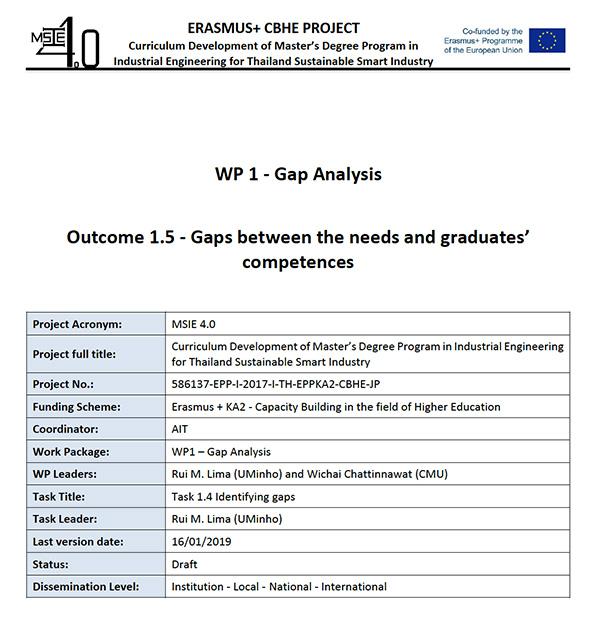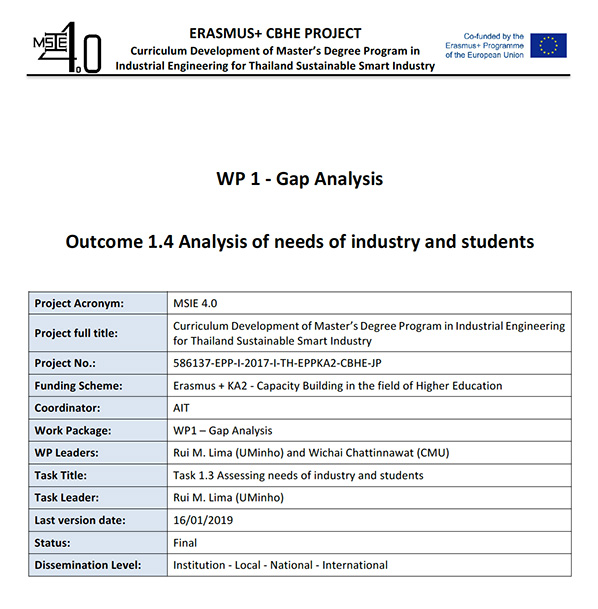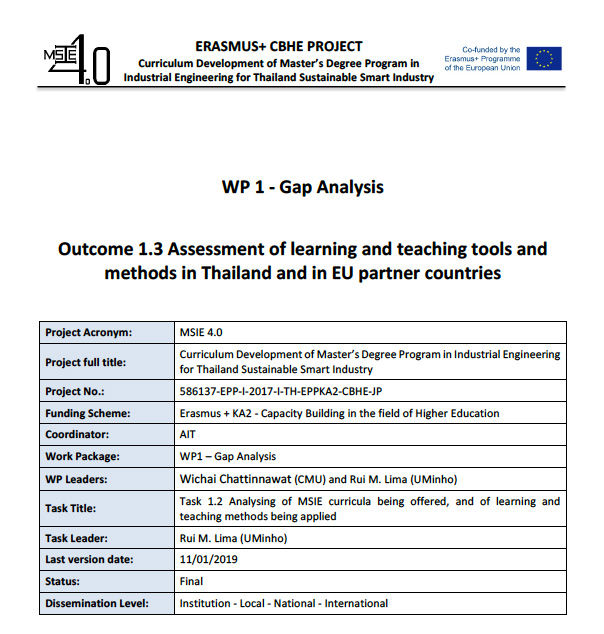This report presents the gap analysis between the industry and students’ needs and graduates’ competences, and a comparison between industry needs of Thai and European selected companies.
The results of the comparison between industry needs of Thai and European selected companies show that, in general, Thai companies have a higher need of development of technologies and systems to support Industry 4.0 than the European surveyed companies do.
The gap analysis was based on a triangular analysis data source between industry needs, students’ needs and curricula current situation. Roles of MSIE graduates were identified for applications derived from the applications of Big Data, Sensors, and Mobile systems on production, product development and IT. Their expected competence levels based on Bloom’s taxonomy were identified. For the gap analysis, the project’s team added an analysis of the current situation related to the development of this level of competences.
The professional role of Engineers need not only technical competences but also transversal competencies. Both companies and students identified the development of transversal competences as being highly important but the analysis of curricula showed barely existent references to the development of transversal competences in current master programs.
A full report is available here.



